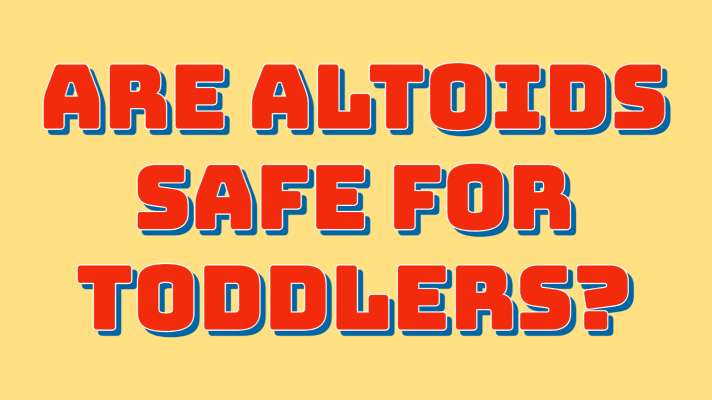Toddlers tend to have bad breath a lot of the time. There are times when gingivitis is caused by poor oral hygiene habits (such as inconsistent brushing), while there are times when it results from other factors (such as nasal congestion). The fact is that regardless of what the case may be, many parents with kids who have bad breath wonder if over-the-counter breath fresheners (such as mouthwash, breath mints, breathe strips, and sprays) are safe to use on them. The following is the inside scoop on all of these products that we’re going to give you.
According to the American Dental Association, mouthwashes containing fluoride are not recommended for toddlers under 6, depending on their oral health needs. Most of this has to do with the high probability that toddlers will swallow the mouthwash instead of spitting it out. The good news is that if you have a toddler who has reached the age of six, several bottles of mouthwash are suitable and even developed for toddlers. You should, however, always check the label to see if there are any age restrictions listed.
There is one primary concern with the breath strips: many over-the-counter medications are now available in similar packages. In particular, melatonin strips and nicotine patch strips are both available in similar packages. It has been reported that young children have taken strips that they thought were breath strips and then eaten the rest of the medications, giving some of the medicines to their friends in the process. However, even though breath strips themselves do not pose any hazards to toddlers, it is recommended that you do not encourage your toddler to use them.
You should be aware that some breath sprays contain ingredients such as alcohol or sugar substitutes, which could harm your toddler’s oral health. To use a breath spray safely, you should ensure that the formula does not contain any alcohol. One primary concern comes from breath mints, which is the potential choking hazard that may come from them. There is no point in giving mints to toddlers who cannot suck (or chew) and swallow them. Similarly, you want to avoid giving your toddlers sugary mints since sugary mints can exacerbate the problem of bad breath in toddlers.
The best thing you can do to prevent your toddlers from getting bad breath is to make sure that they brush and floss regularly. Furthermore, by ensuring that they drink enough water throughout the day, they will work more efficiently. You should consult your dentist or doctor if you continue to have breathing problems to find out what might be causing it. During your visit to your dentist/physician, the dentist or doctor will be able to tell you whether there are any more significant issues that need to be addressed (such as tonsillitis or sinus infections).
Altoids Have Some Surprising Disadvantages.
According to the news source, Wales Online reports that eating Altoids can have the strange side effect of sneezing fits in some people who are sensitive to the strong mint flavor. According to Healthline, an inherited trait known as photic sneeze reflex, also known as the Achoo syndrome, can be triggered by variations in bright light, spicy food, or even by changes in the amount of oxygen in a room.
It is factual that eating too many sugary mints, such as non-sugar-free Altoids, can cause you to develop bad breath in the long run. According to a report published by Yahoo! News, sugar deposited in your mouth can cause the bacterium that causes bad breath to thrive, opening the door to the formation of a perfect breeding ground.
Furthermore, the freshness may also only last for a short period. There’s nothing, say dentists at Carefree Dental, which can compare with peppermint oil or other natural ingredients that would stick around and keep your mouth feeling fresh for a long time. Altoids are now made primarily with sugar and artificial flavors, so not even peppermint oil or other natural ingredients would do that.
FAQ Related to Are Altoids safe for toddlers
Can toddlers eat mints?
In terms of breath mints, the biggest concern is the potential choking hazard that comes from them. If you think you cannot suck (or chew) and swallow your mints, then you should never give them to a child. You also don’t want to give your kids mints containing sugar, as these can aggravate the bad breath problem in your children.
Can toddlers consume peppermint candy?
According to Encyclopedia.com, the menthol contained in peppermint is a potential choking hazard for children younger than five years old if they consume high doses of the plant, according to Encyclopedia.com. In addition, you should not apply peppermint oil directly to your child’s face if they are infants or young children.
What are the benefits of Altoids?
Altoids are among the most popular choices nowadays when a person needs to combat bad breath caused by coffee or strong odors originating from food, partly because of their robust mint flavor. While the original Altoids were probably flavored with peppermint oil, today’s breath fresheners containing the same brand rely mainly on sugar and artificial flavors.
